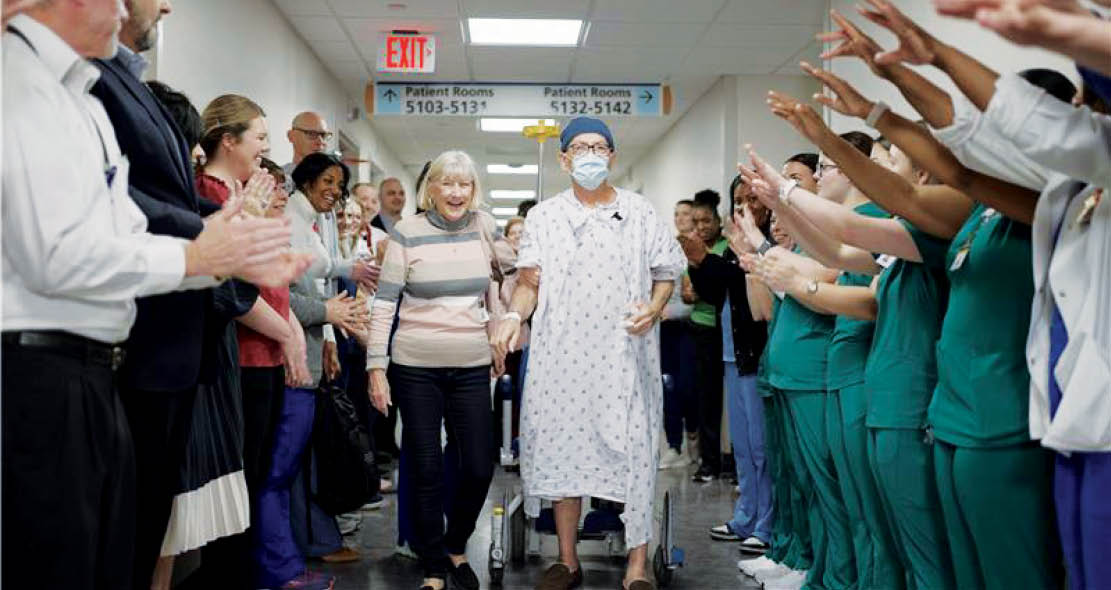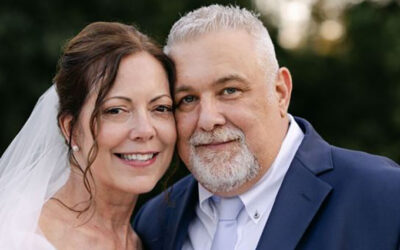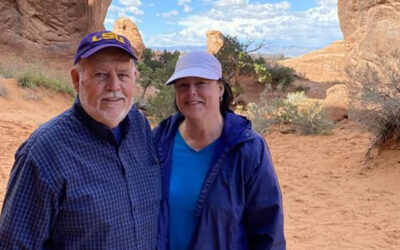When Ed Carruthers collapsed while replacing a battery in his truck, he chalked it up to an old back injury. A former railroad police officer, he was used to hard work and occasional aches and pains.
But what he thought was a minor issue turned out to be something far more serious — multiple myeloma, a type of blood cancer that affects the bone marrow.
An Unexpected Diagnosis
Ed and his wife, Ginny, were enjoying their retirement in Madisonville, Louisiana, close to their two granddaughters.
They had big plans to visit family in Arizona, but before they left, Ed experienced severe back pain while loading up his fifth-wheel trailer. He pushed through, enduring a challenging road trip filled with unexpected setbacks.
When they returned home, Ed went in for his routine physical, expecting nothing out of the ordinary. Instead, his doctor’s office called him the next morning with urgent news — he needed to check into the hospital immediately. Three days later, he received the diagnosis: multiple myeloma.
“I had no idea,” Ed recalled. “I thought it was just my back. If I hadn’t gone for my checkup, I don’t know where I’d be today.”
Pioneering Treatment Close to Home
Ed’s journey led him to Our Lady of the Lake Cancer Institute, where he became the first patient to undergo an autologous bone marrow transplant since the launch of the Hematologic Malignancy Cell Therapy program.
An autologous bone marrow transplant is an advanced procedure where a patient’s own stem cells are collected, preserved and then reintroduced after high-dose chemotherapy. This innovative approach helps restore healthy blood cell production while minimizing risks associated with donor transplants.
Under the expertise of Hana Safah, MD, and Nakhle Saba, MD, Our Lady of the Lake has expanded its specialized blood cancer care, ensuring patients like Ed have access to such world-class treatments without leaving Louisiana.
“The availability of these treatments right here in Baton Rouge is a game changer,” Dr. Safah says. “Patients no longer need to travel long distances to receive world-class care.”
For Ed, the procedure was easier than he expected.
“Other than a sore rib, this was a piece of cake,” he says. “The whole team here has been wonderful.”
A Journey to 50 Years
Ed’s transplant is not just about recovery — it’s about reaching a milestone. This July, he and Ginny will celebrate their 50th wedding anniversary, a moment his treatment has made possible.
While Ed was in the hospital recovering with a very weakened immune system, Ginny was able to stay at the Hogs for the Cause Family Support Home, which provided a place of comfort and support during an incredibly difficult time.
Now back home and recovering, Ed is eager to return to his life — especially spending time with his granddaughters, ages 6 and 3. He encourages others to take their health seriously, emphasizing the importance of regular checkups and blood work.
“If I hadn’t gone to the doctor, I wouldn’t have known I had this,” Ed says. “Get your checkups. Get your blood work done. It could save your life.”
Innovation That’s Reshaping Cancer Care
Ed’s milestone is just one part of a larger transformation happening at Our Lady of the Lake Cancer Institute. The Hematologic Malignancy Cell Therapy program is rapidly advancing, offering patients access to groundbreaking treatments.
Dr. Saba emphasizes the importance of this progress. “We are committed to bringing the most advanced therapies to Louisiana. Our vision is to expand specialized cancer care across the region, ensuring that every patient has access to excellence in treatment without having to travel.”
As Our Lady of the Lake continues to push the boundaries of cancer care, the future holds even more promise. From expanding clinical trials to introducing next-generation immunotherapies, the Cancer Institute is ensuring that patients in Louisiana and beyond receive the most innovative, life-saving treatments available.




